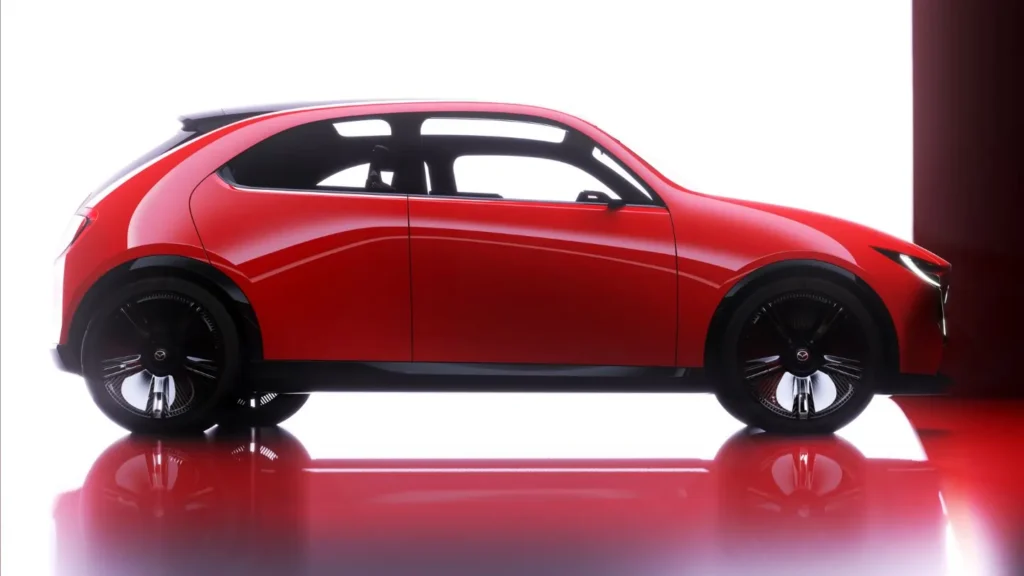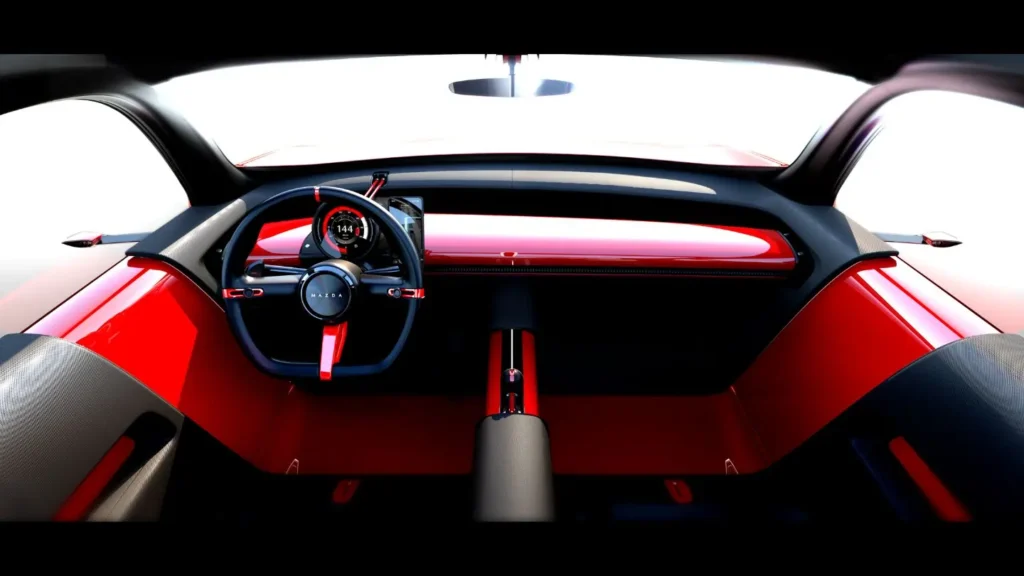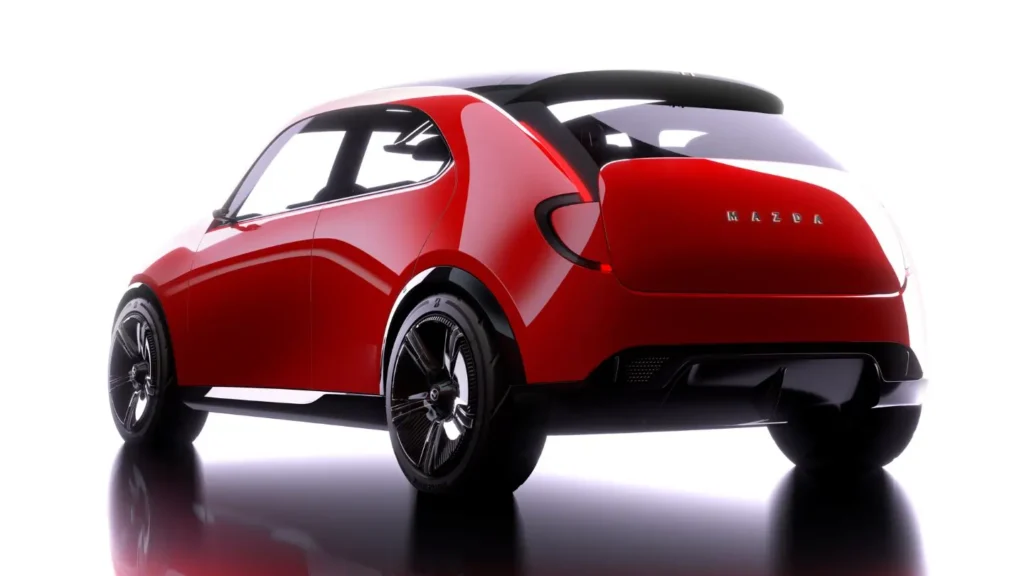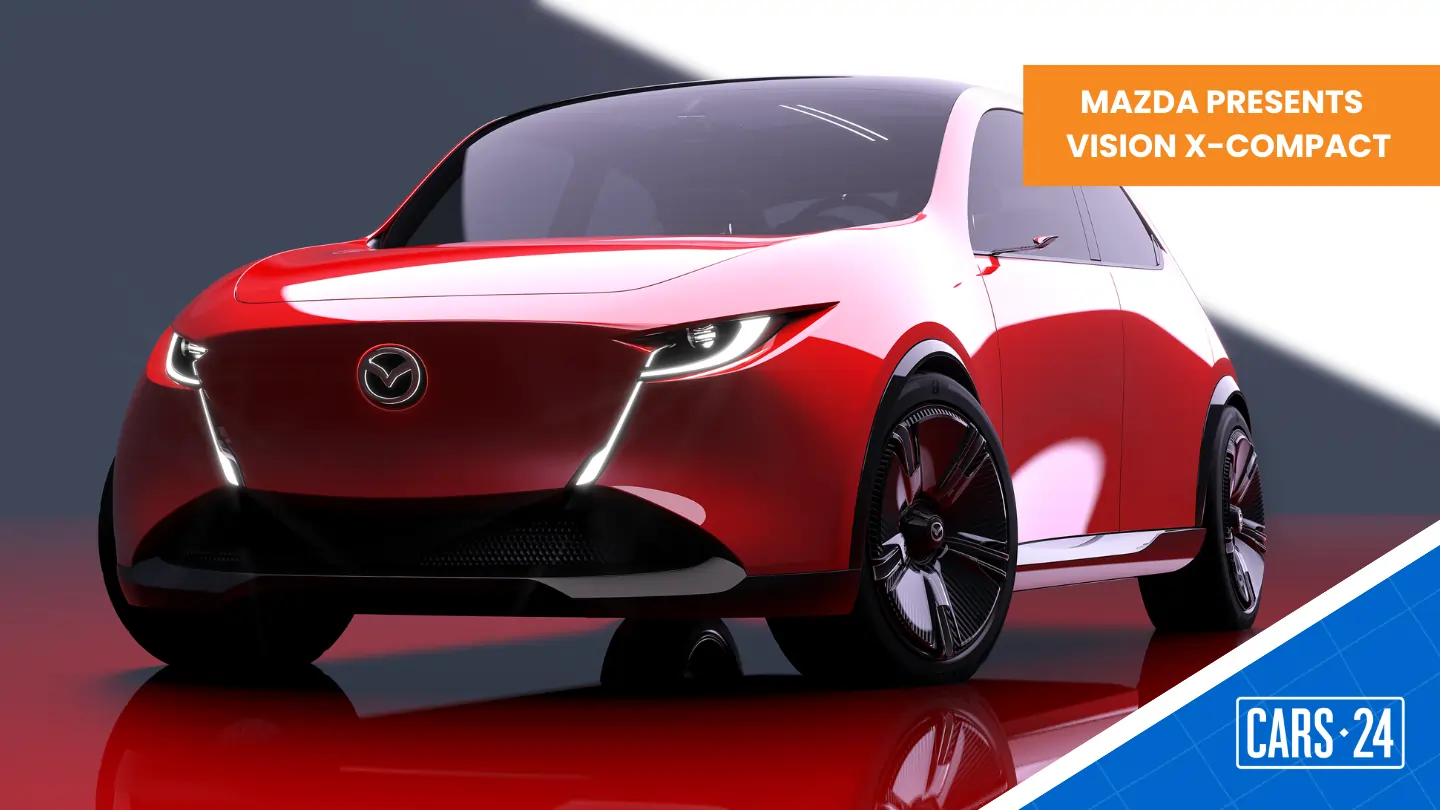While many automakers at the Japan Mobility Show are focused on horsepower and battery density, Mazda has taken a decidedly human-centric approach with its second concept, the Vision X-Compact, outlining its vision for smart mobility in 2035. While considerably smaller in size, this concept isn’t about lap times. Instead, it imbues mobility with a sense of sentience, envisioning a future where your car evolves from a mere machine into a close companion.
A friendly future

Mazda calls the Vision X-Compact a fusion of human sensory data and empathetic AI. In simpler terms, the car learns from its driver, holds natural conversations, anticipates needs, and even suggests destinations. It’s a fascinating and slightly uncanny glimpse into a future where your car may know your mood before you do.
Designed for the human experience

Compact yet expressive, the Mazda Vision X-Compact wears Mazda’s trademark minimalism with futuristic restraint.
| Specification | Figure |
| Overall Length | 3,825 mm |
| Width | 1,795 mm |
| Height | 1,470 mm |
| Wheelbase | 2,515 mm |
Mazda says the concept embodies its “Radically Human” value, where technology enhances emotion rather than replacing it. It’s an interesting counterpoint to the colder, data-driven approach many tech-first automakers take.
Between promise and practicality

While the AI concept feels compelling, it also raises questions. Will drivers really want an emotional connection with their car or just an efficient one? And how far can Mazda’s “empathetic AI” go before it turns intrusive?
Still, as a vision statement, the Vision X-Compact shows that Mazda is willing to experiment at the intersection of engineering, psychology, and art, a space few mainstream brands dare to explore.
In an industry obsessed with autonomy and algorithms, Mazda’s focus on empathy might just be its most radical move yet.

Comments
New Comment